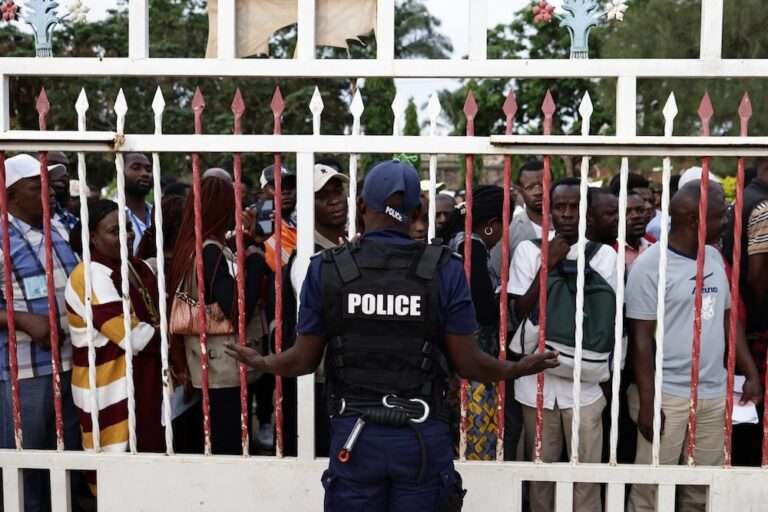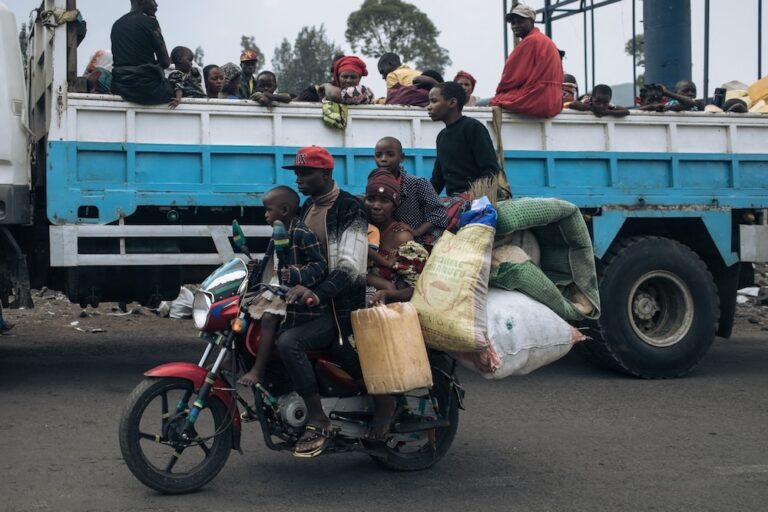(JED/IFEX) – On 21 October 2005, Marlene Rabot, Kinshasa correspondent for the British news agency Reuters, was detained for more than six hours by Airway Authority (Régie des Voies Aériennes) police at Kinshasa/N’Djili International Airport on the order of an unidentified commander from the Airport Security Agency (Agence pour la Sécurité des Aéroports). Rabot was […]
(JED/IFEX) – On 21 October 2005, Marlene Rabot, Kinshasa correspondent for the British news agency Reuters, was detained for more than six hours by Airway Authority (Régie des Voies Aériennes) police at Kinshasa/N’Djili International Airport on the order of an unidentified commander from the Airport Security Agency (Agence pour la Sécurité des Aéroports). Rabot was released in the early evening after several officials intervened, including the ministers of transport and press and information, but her tapes were confiscated.
The journalist was detained when, in the company of National Intelligence Agency (Agence Nationale des Renseignements, ANR) and Immigration agents, she recorded some images of the airport for a report on civil aviation in the Democratic Republic of Congo (DRC). Her tapes were confiscated by agents who also tried in vain to take away her camera.
Rabot was in possession of accreditation issued by Press and Information Minister Henri Mova Sakanyi allowing her to carry out her report. The minister told JED that he had indeed issued the accreditation, but clarified that “Kinshasa/N’Djili International Airport includes some strategic sites closed to the press” that are not under his authority.
Contacted while she was still on the airport police’s premises, the journalist said the tapes for her report were viewed and they included no images of the airport’s “strategic sites.”
JED is shocked that, at a time when the DRC has recorded numerous airplane accidents leading to the loss of several lives, a journalist is prevented from informing the public about the reality of Congolese civil aviation.
JED also denounces the harassment that numerous journalists, especially foreigners, have been subjected to each time they try to report from public places in Kinshasa despite having accreditation issued by the relevant authorities.
Given that the security of air travel is a vitally important question in the DRC today and deserves to be publicly debated, JED demands that the authorities unconditionally return the confiscated tapes and guarantee that the journalist be able to continue her reporting.


